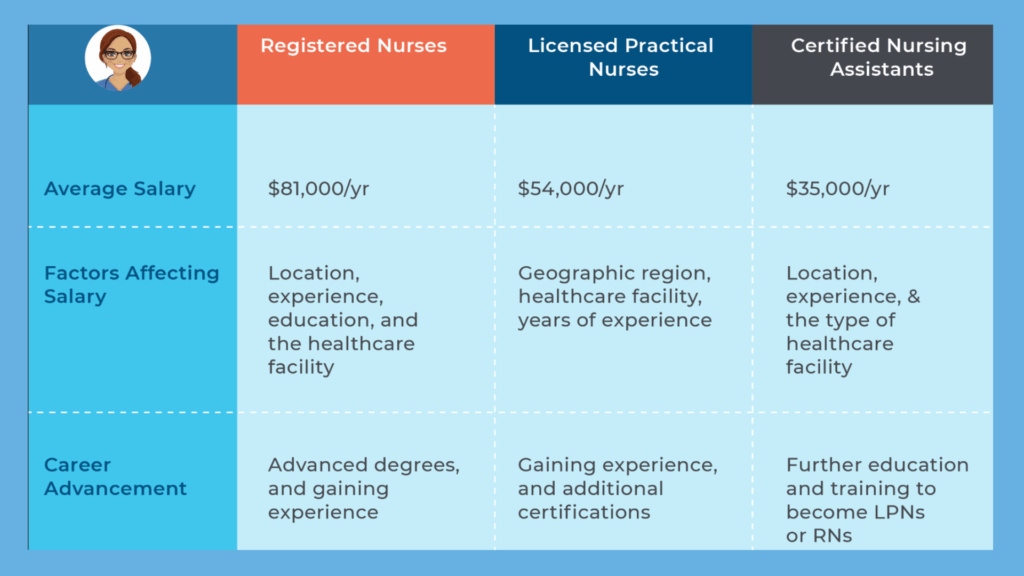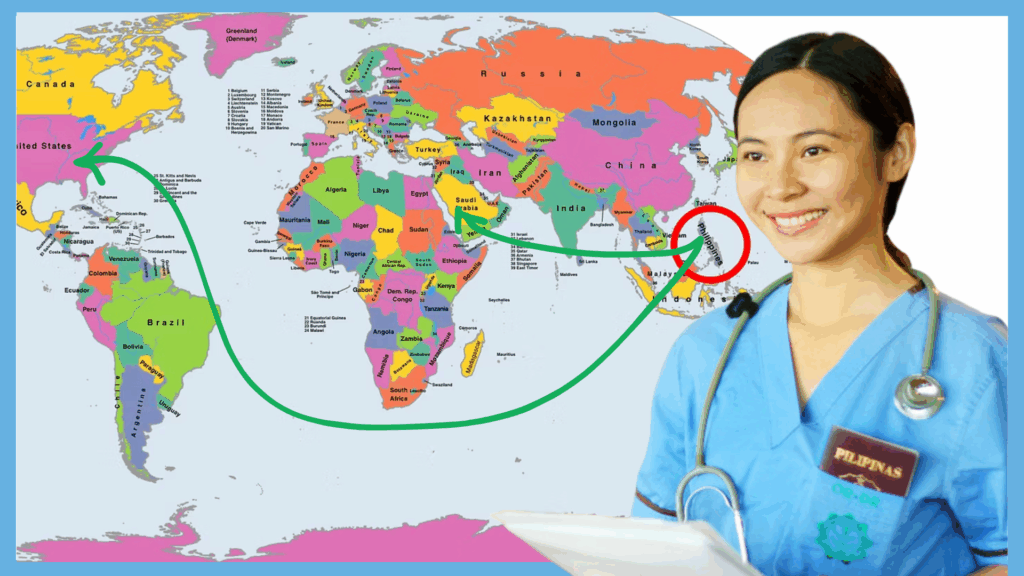Elevate Your Nursing Career with English & Soft Skills for Higher Pay. In the global healthcare landscape, Filipino nurses stand out as a powerhouse of talent, dedication, and expertise. Known for their resilience and high-quality training, thousands migrate annually to high-income countries seeking better opportunities. The Philippines produces more nurses than any other nation per capita, with many heading to destinations where demand for skilled healthcare professionals is insatiable. This migration isn’t their pathway to transformative career growth. However, success abroad hinges on more than clinical skills alone. Mastering English, specialized Medical English, and essential soft skills like communication, leadership, and teamwork can significantly correlate with higher compensation and accelerated promotions.
Filipino nurses have long been integral to international healthcare systems, particularly in the United States and the Middle East. In these regions, where healthcare demands are escalating due to expanding medical infrastructure and aging population, expats who excel in language and interpersonal abilities often outpace their peers in career advancement. This article explores this correlation, drawing on data and insights to illustrate how these competencies open doors to premium roles and better compensation.
Organizations like Sohaara work on this transformation, offering intelligently designed programs that elevate nurse expats’ skills in English, Medical English, and soft skills. Through these programs, Sohaara empowers nurses to seize better opportunities, bridging the gap between potential and achievement. As we delve into the US and Middle East contexts, the evidence is clear that these skills close the last mile to higher success.
Elevate Your English & Soft Skills for Higher Pay in the US
The United States remains a top destination for Filipino nurses, drawn by robust healthcare systems and lucrative earnings. According to recent data, 1 out of 20 registered nurses in the US is trained in the Philippines. This equates to a significant portion of the workforce, with Filipino nurses comprising about 4% of the total RN population, yet their impact is profound, especially during crises like the COVID-19 pandemic. The migration trend continues, fueled by economic incentives. The median salary for a registered nurse in the US stands at $77,600 annually, a stark contrast to domestic earnings in the Philippines.
But compensation varies widely based on factors like location, experience, and skills. States like California and New York offer the highest pay, with averages exceeding $100,000 for experienced RNs. For Filipino expats, mastering English proficiency is a game-changer. Studies show that internationally educated nurses with high English skills earn wages approximately 14% higher than their peers with language barriers. This premium stems from better integration into teams and smoother patient interactions. And that paves the way to the eligibility for advanced roles. Medical English, which includes terminology for procedures, diagnostics, and documentation, further amplifies this. Nurses fluent in this specialized language navigate electronic health records and multidisciplinary discussions with ease, reducing errors and boosting efficiency.
Soft skills compound these advantages. Research indicates that interpersonal abilities, such as empathy and teamwork, are crucial for career progression in nursing. In a survey of successful nurses, 76% highlighted empathy as essential. For Filipino nurses, who often bring cultural adaptability, honing leadership and problem-solving skills leads to faster promotions. A study on soft skills in healthcare found that strong interpersonal competencies predict a 53% higher rate of career advancement. This is evident in promotions to roles like nurse managers or educators, where collaboration is key.
Consider the data: Philippine-educated nurses enjoy a wage premium in the US, reflecting their quality and adaptability. Yet, those with superior English and soft skills advance quicker. For instance, nurses with advanced language confidence report higher job satisfaction and fewer discrimination incidents, correlating with promotion rates up to 20% faster. In high-demand areas like California, where 26% of immigrant healthcare workers are concentrated, these skills enable expats to secure positions in top hospitals.

Experience and education play roles, but soft skills drive the leap from entry-level to leadership. Younger nurses with high English proficiency secure higher wages and promotions, as per integration studies. For Filipino expats, overcoming language barriers through targeted training can mean jumping from staff nurse to charge nurse in under two years, versus the typical four.
The US healthcare system’s reliance on diverse talent amplifies this. With 15% of RNs being internationally educated, those who lead in communication often mentor others, further accelerating their trajectory. Sohaara’s programs, focusing on these exact skills, position nurses to thrive, turning potential challenges into strengths.
Elevate Your English & Soft Skills for Opportunities in Saudi Arabia
Shifting focus to the Middle East, particularly Saudi Arabia, Filipino nurses find a dynamic environment ripe for growth. Saudi Arabia employs an estimated 130,000 Filipino nurses, many advancing their careers in state-of-the-art hospitals. The country’s healthcare boom, driven by Vision 2030, has created a surge in demand for expatriate talent. Migrant nurses constitute 37% of the nursing staff in Saudi’s Ministry of Health.
Salaries are competitive, with entry-level staff nurses earning between 4,000 and 6,000 Saudi Riyals (SAR) monthly, equivalent to about 52,000 to 78,000 Philippine Pesos and $1,067 to $1,600. In private facilities, this can rise to 8,000 SAR or more with experience. However, higher compensation often ties to skills that enable better collaboration and leadership. English proficiency is paramount in multicultural settings where teams include professionals from dozens of nationalities. Nurses with strong command of Medical English handle complex cases involving international protocols, leading to promotions in specialized units like ICU or oncology.
Soft skills are equally vital. In Saudi hospitals, Filipino nurses who excel in teamwork and cultural sensitivity often move into supervisory roles faster. A study on job satisfaction found a strong positive correlation between motivation, soft skills, and retention, with satisfied nurses advancing quicker. Challenges like language barriers affect 91.4% of migrant nurses, but those who overcome them through training see enhanced opportunities.
Data shows that nurses with high English training requirements focus on contributing effectively, resulting in better pay scales. Turnover studies in Saudi reveal that better social support and soft skills reduce departure rates, allowing for sustained career building.
The healthcare market in the Middle East is reaching $412.25 billion by 2032, with nursing as a core service. For Filipino nurses, mastering skills means tapping into this growth.
In the Middle East, 50% of doctors and nurses are migrants. Those with proficient English and soft skills lead in patient care and team dynamics, earning promotions to head nurse positions within 18-24 months.
In practice, Filipino nurses in Saudi often start without full board certification but advance rapidly with skill enhancement. Soft skills like problem-solving and empathy mitigate stress, correlating with higher well-being and career longevity. Sohaara’s approach, completing the skillset with targeted training, equips nurses to excel in these demanding environments.
The Power Trio: English, Medical English, and Soft Skills
The correlation between these skills and career success is backed by robust evidence. English proficiency impacts healthcare access and professional engagement, with proficient nurses securing better appointments and roles. In high-income countries, English proficiency in healthcare yields higher salaries and promotion probabilities. Medical English ensures precise communication, reducing misunderstandings in critical settings.
Soft skills, including critical thinking and teamwork, are indispensable. A qualitative study identified personal, interpersonal, and functional skills as facilitators of advancement. Organizational intelligence, tied to soft skills, enhances thriving and capabilities. For nurses, these translate to better patient outcomes and leadership opportunities.
For Filipino nurse expats, mastering English, Medical English, and soft skills is the key to unlocking higher compensation and faster promotions in the US and Middle East. As global healthcare evolves, Sohaara leads the way in skill elevation, fostering thought leadership and empowering nurses for unparalleled success.




